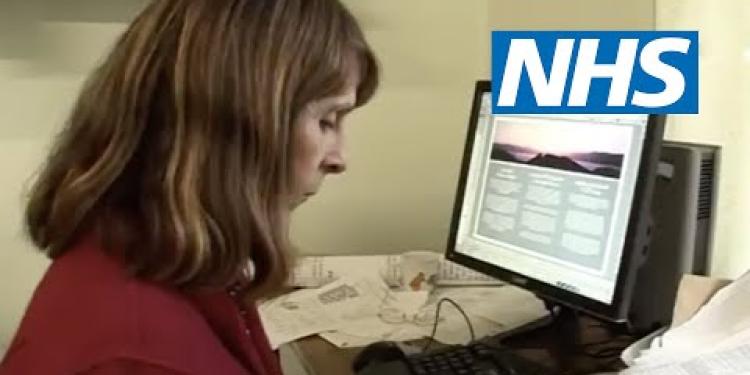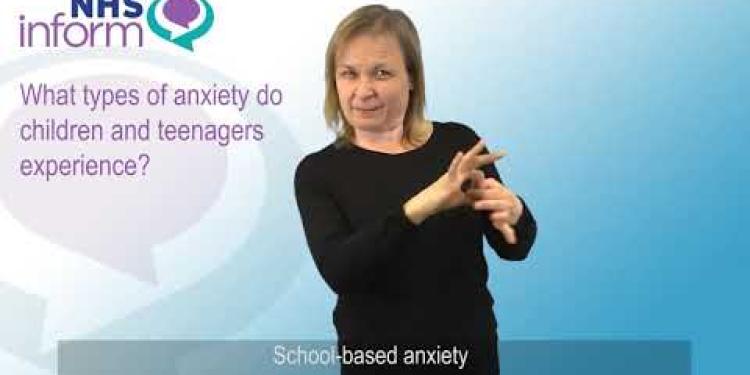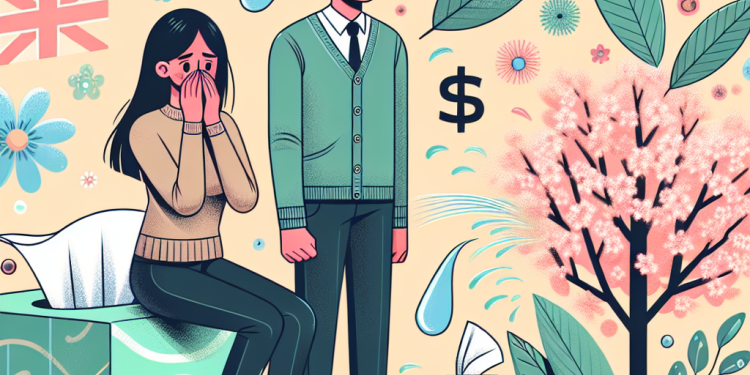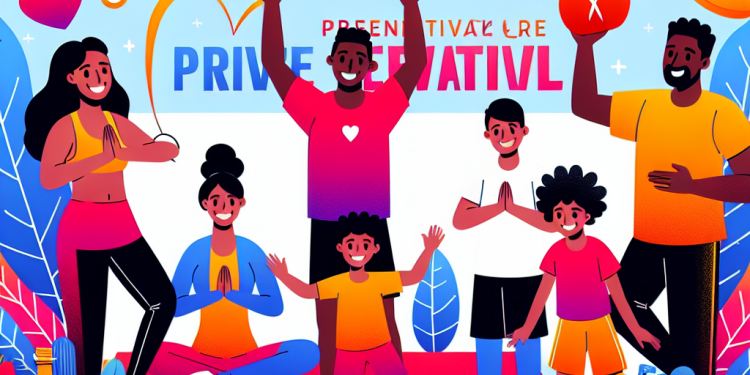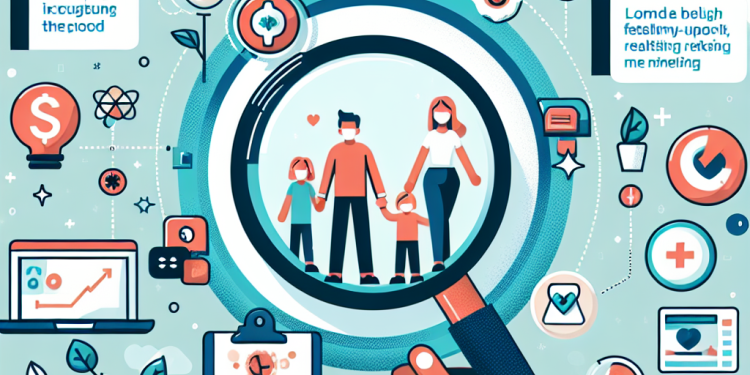Important Information On Using This Service
- Ergsy carefully checks the information in the videos we provide here.
- Videos shown by YouTube after a video has completed have NOT been reviewed by ERGSY.
- To view, click the arrow in the center of the video.
Using Subtitles and Closed Captions
- Most of the videos you find here will have subtitles and/or closed captions available.
- You may need to turn these on and choose your preferred language.
Turn Captions On or Off
- Go to the video you'd like to watch.
- If closed captions (CC) are available, settings will be visible on the bottom right of the video player.
- To turn on captions, click settings.
- To turn off captions, click settings again.
Find A Professional
More Videos of Interestdiagnosis
Short Films About Mental Health - Anxiety
The Importance of Short Films in Discussing Anxiety
Short films have emerged as a powerful medium to discuss and raise awareness about mental health issues, including anxiety. These films can delicately explore complex emotions and scenarios in a compact format, making them accessible and engaging. In the United Kingdom, mental health issues are increasingly in the spotlight, with anxiety disorders affecting a significant portion of the population. Short films can tap into the nation's collective consciousness and start essential conversations about coping mechanisms, treatment, and support.Notable Short Films on Anxiety
Several short films have successfully illustrated the multifaceted nature of anxiety. For instance, "The Edge of Seventeen" is a candid portrayal of teenage anxiety and the struggles of fitting in. Another exemplary short, "Hair Love," focuses on the nuanced anxiety experienced by a father trying to bond with his daughter. Additionally, "The Present" deals with societal pressures and the internal battles faced by individuals. These films serve as relatable narratives that resonate with audiences, offering insights into the lives of those grappling with anxiety.Creating Cultural and Social Impact
Short films have the potential to create substantial cultural and social impact. In the UK, organisations like Mind and Rethink Mental Illness often use visual storytelling to advocate for better mental health policies and resources. These films are shared through social media, film festivals, and educational programmes, ensuring they reach diverse audiences. The empathetic portrayal of anxiety in these short films can reduce stigma, foster empathy, and encourage individuals to seek help, thereby instigating change at both personal and community levels.Personal Stories and Authentic Representation
One of the significant strengths of short films is their ability to tell personal and authentic stories. Filmmakers can draw from real-life experiences, ensuring the portrayal of anxiety is both genuine and respectful. The authenticity resonates with viewers, who may see their struggles mirrored on screen. This representation can be particularly impactful for those in the United Kingdom, where mental health services are striving to improve inclusivity and effectiveness.Conclusion
Short films about mental health and anxiety are vital tools for education, advocacy, and empathy-building. They can make the invisible struggles of anxiety visible, prompting important discussions and ultimately inspiring action. In the UK, where awareness and resources for mental health are continually evolving, these short films can play a crucial role in fostering a more understanding and supportive society.Frequently Asked Questions
What is anxiety?
Anxiety is a feeling of worry, nervousness, or unease about something with an uncertain outcome. It is a common mental health condition that can affect anyone.
What are the symptoms of anxiety?
Symptoms of anxiety can include feelings of nervousness, restlessness, or being tense, having a sense of impending danger or panic, an increased heart rate, rapid breathing, sweating, trembling, feeling weak or tired, and trouble concentrating.
How common is anxiety in the UK?
Anxiety is one of the most common mental health conditions in the UK, affecting millions of people each year. According to the NHS, approximately 1 in 6 people report experiencing a common mental health problem like anxiety in any given week in England.
What causes anxiety?
Anxiety can be caused by a combination of factors including genetics, brain chemistry, personality, and life events such as trauma or stress. Sometimes, there may be no obvious cause.
How is anxiety diagnosed?
Anxiety is typically diagnosed by a GP or mental health professional through a detailed assessment that includes discussing your symptoms, medical history, and sometimes completing a questionnaire.
What treatments are available for anxiety?
Treatments for anxiety can include talking therapies like cognitive behavioural therapy (CBT), medication such as antidepressants, and self-help strategies like mindfulness and relaxation techniques.
Can lifestyle changes help with anxiety?
Yes, lifestyle changes such as regular exercise, healthy eating, getting enough sleep, reducing caffeine and alcohol intake, and practicing relaxation techniques can help manage anxiety symptoms.
What is cognitive behavioural therapy (CBT)?
Cognitive behavioural therapy (CBT) is a type of talking therapy that helps you to manage your problems by changing the way you think and behave. It is commonly used to treat anxiety.
Are there any self-help resources for anxiety?
Yes, there are many self-help resources available for anxiety including books, online courses, and mobile apps. Mind, an important mental health charity in the UK, also offers various resources and support.
Can medication help with anxiety?
Medication can be effective for some people with anxiety. Common medications include selective serotonin reuptake inhibitors (SSRIs) and benzodiazepines, which can help reduce symptoms and improve quality of life.
What should I do if I think I have anxiety?
If you think you have anxiety, it's important to seek help. You can start by talking to your GP who can provide an assessment and recommend appropriate treatment options.
Is it normal to feel anxious sometimes?
Yes, it is normal to feel anxious in certain situations like before a big event or during a challenging time. However, if anxiety is frequent, overwhelming, and affecting your daily life, it may be a sign of an anxiety disorder.
Can children and teenagers experience anxiety?
Yes, children and teenagers can experience anxiety. It's important for parents and caregivers to recognize the signs and seek appropriate support and treatment if needed.
Can anxiety be prevented?
While it may not be possible to prevent anxiety entirely, you can take steps to reduce your risk and manage symptoms. These include maintaining a healthy lifestyle, managing stress, and seeking help early if you experience symptoms.
Where can I find more information and support for anxiety?
For more information and support, you can visit resources such as the NHS website, Mind (mind.org.uk), Anxiety UK (anxietyuk.org.uk), and Samaritans (samaritans.org). These organizations provide valuable information, support, and helplines.
Useful Links
Useful links from: Anxiety in young people
- NHS - Anxiety in Children This NHS page provides information on anxiety disorders in children, symptoms to watch out for, and guidance on when to seek help for your child.
- YoungMinds - Anxiety YoungMinds offers support and advice for parents and carers to help them understand and manage anxiety in young people.
- Mind - Understanding Anxiety and Panic Attacks Mind provides detailed information on different types of anxiety and panic attacks, exploring their causes and symptoms, along with advice on treatment and support options.
- Childline - Anxiety Childline offers a resource for young people experiencing anxiety, with advice on managing anxiety, personal stories, and interactive tools to help cope.
Useful links from: Dealing with Seasonal Allergies
- NHS - Seasonal allergies (hay fever) Comprehensive NHS guide on symptoms, causes, diagnosis, treatment, and prevention of hay fever. Includes useful tips to manage and reduce symptoms.
- Allergy UK - Hay Fever Allergy UK's dedicated page on hay fever, providing detailed information on symptoms, management, and tips for coping with pollen allergies.
- British Allergy Foundation - Seasonal Allergies Resourceful page by the British Allergy Foundation on seasonal allergies, offering insights on allergens, symptoms, and methods to alleviate discomfort.
- Asthma UK - Hay Fever and Asthma Asthma UK's information on how hay fever can affect asthma, providing advice on managing both conditions together and reducing asthma triggers.
Useful links from: Exercise Routines for Busy Parents
- NHS - Fitness Studio The NHS Fitness Studio provides a range of online exercise videos that can be done at home, perfect for busy parents seeking effective workouts.
- NHS - Exercise for Busy Mums and Dads This page offers tips on how to incorporate more activity into a busy schedule, tailored specifically for busy parents.
- British Heart Foundation - Staying Active at Home The British Heart Foundation provides advice and resources for staying active within the home, suitable for parents with limited time.
- Mind - Physical Activity & Your Mental Health Mind offers information on how physical activity can support mental health, including practical tips that busy parents can use for self-care.
Useful links from: Coping with Stress and Anxiety
- NHS - Stress NHS page providing comprehensive information on understanding, managing, and reducing stress, along with tips for maintaining mental well-being.
- NHS - Anxiety NHS resource dedicated to understanding anxiety, including symptoms, treatment options, and self-help strategies.
- Mind - Stress Mind, a UK-based mental health charity, offers detailed information on stress, its causes, symptoms, and ways to manage it effectively.
- Anxiety UK Anxiety UK provides support and information for those affected by anxiety disorders, offering resources, therapy services, and self-help materials.
Useful links from: Preventative Care: What Your Family Needs
- NHS - Preventive Health This NHS page provides comprehensive information on various preventive health screenings, including what they entail and when you should get them.
- British Heart Foundation - Prevention & Research The British Heart Foundation offers insights on preventing heart disease through healthy living and provides research updates on heart disease prevention.
- Cancer Research UK - Cancer Prevention Cancer Research UK provides detailed information on how to reduce the risk of cancer through lifestyle choices and other preventive measures.
- Mind - How to Improve and Maintain Mental Wellbeing Mind, the mental health charity, offers tips and resources to help you improve and maintain your mental wellbeing as part of preventive care.
Useful links from: Personal Health: Navigating the NHS for Efficient Care
- NHS - How to access NHS services Comprehensive guide on how to access and use various NHS services including GPs, dentists, and hospitals.
- Macmillan Cancer Support - Navigating the NHS Resource for cancer patients on how to navigate the NHS, including accessing treatment and support services.
- Mind - Navigating Mental Health Services Guide on how to seek help for mental health problems through the NHS, including what to expect and your rights.
- Age UK - How to get the most from your GP Advice for older adults on how to effectively use GP services, including preparing for appointments and understanding your healthcare options.
Useful links from: Healthy Family Lifestyle Tips Post-Pandemic
- NHS - Keeping kids fit NHS guidelines on physical activity for children and young people which can help in maintaining a healthy lifestyle post-pandemic.
- British Heart Foundation - Healthy Eating Guidance and tips from the British Heart Foundation on healthy eating habits for the whole family.
- NHS - Mental Wellbeing NHS advice on improving mental wellbeing for families, crucial for managing stress and mental health post-pandemic.
- Change4Life NHS-backed campaign providing ideas and resources to help families stay active and eat well.
Useful links from: Anxiety | NHS
- NHS - Anxiety overview Detailed information on anxiety, including symptoms, diagnosis, treatment, and tips for managing the condition.
- NHS - How to Deal With Anxiety Practical tips and guidance on how to manage and reduce anxiety in everyday life.
- Mind - Anxiety and Panic Attacks Support and information from the mental health charity Mind on anxiety and panic attacks, including symptoms, treatments, and support options.
- Anxiety UK A UK charity that provides support, advice, and information for those living with anxiety, stress, and anxiety-based depression.
Useful links from: What type of anxiety do children and teenagers experience?
- NHS - Anxiety in Children This NHS page provides information on anxiety in children, including symptoms, causes, and advice for parents on how to help their child manage anxiety.
- YoungMinds - Anxiety YoungMinds is a UK-based charity focused on children's mental health. This page offers insights into what anxiety is, how it affects young people, and practical advice for managing anxiety.
- NHS - Social Anxiety in Teenagers This NHS resource discusses social anxiety in teenagers, detailing signs to look out for, possible causes, and suggestions for supporting a teenager suffering from social anxiety.
- Mind - Anxiety in Children and Young People Mind, a UK mental health charity, provides comprehensive information about anxiety in children and young people, covering symptoms, treatment options, and coping strategies.
More Videos of Interestdiagnosis
Have you found an error, or do you have a link or some information you would like to share? Please let us know using the form below.
- Ergsy carfully checks the information in the videos we provide here.
- Videos shown by Youtube after a video has completed, have NOT been reviewed by ERGSY.
- To view, click the arrow in centre of video.
- Most of the videos you find here will have subtitles and/or closed captions available.
- You may need to turn these on, and choose your preferred language.
- Go to the video you'd like to watch.
- If closed captions (CC) are available, settings will be visible on the bottom right of the video player.
- To turn on Captions, click settings .
- To turn off Captions, click settings again.
